Published May 22, 2019
'Star Trek: Discovery' Team Talks Music, VFX, and More
In a Paley Center panel, the creative minds behind 'Discovery' spilled more on their inspirations, hopes for 'Trek' going forward, and how they work as a team.
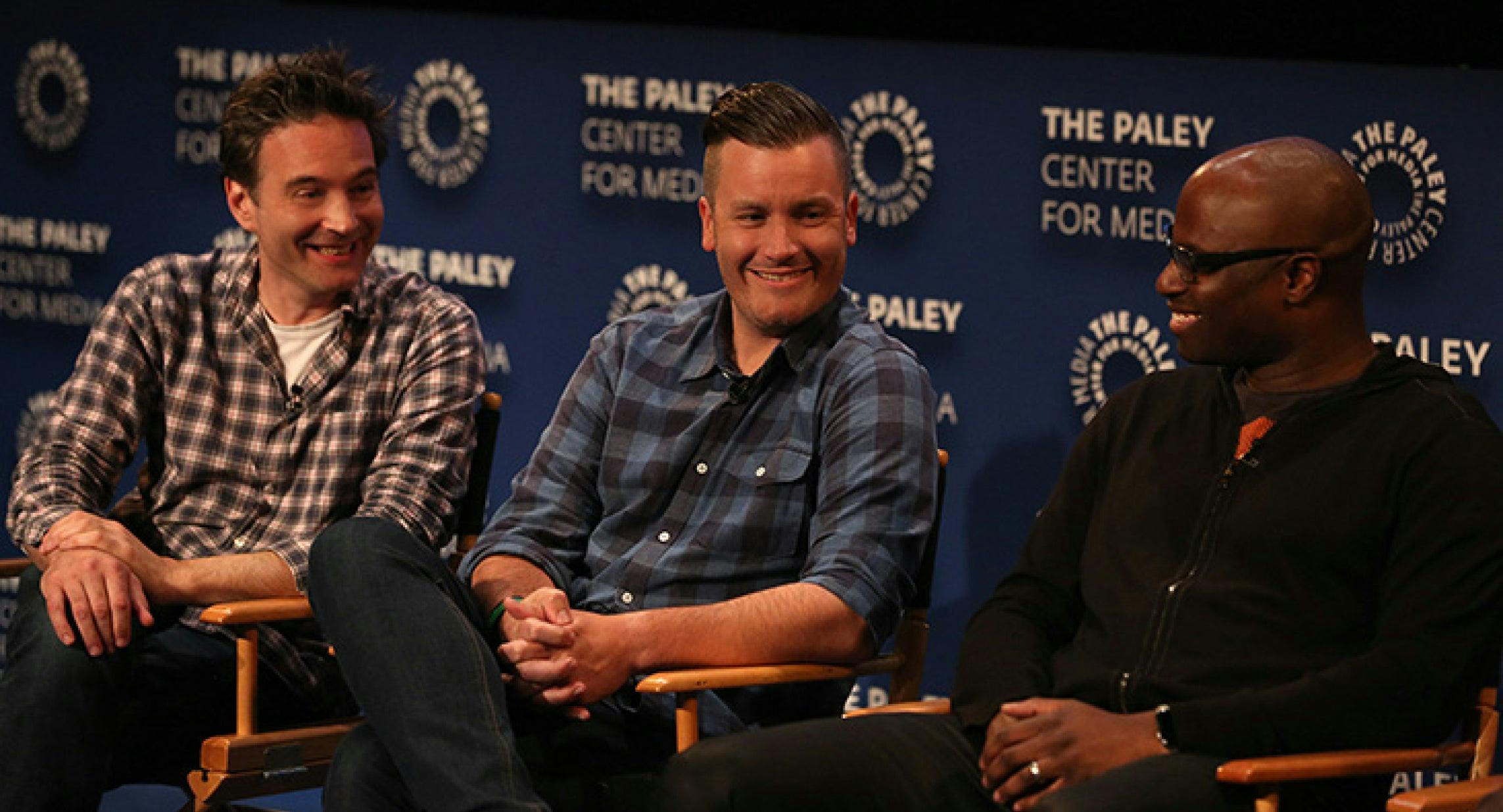
StarTrek.com
Helping to celebrate the Paley Center for Media's Star Trek: Discovery - Fight For The Future exhibit, and the impending Emmy season, the center hosted a second For Your Consideration event in Beverly Hills. Like the first FYC event, the May 21st panel featuredStar Trek:Discovery's executive producer and showrunner, Alex Kurtzman, and VFX supervisor Jason "JZ" Zimmerman. They were joined by composer Jeff Russo, and executive producer Olatunde Osunsanmi. The conversation, which you can read below, was moderated by Naida Albright.
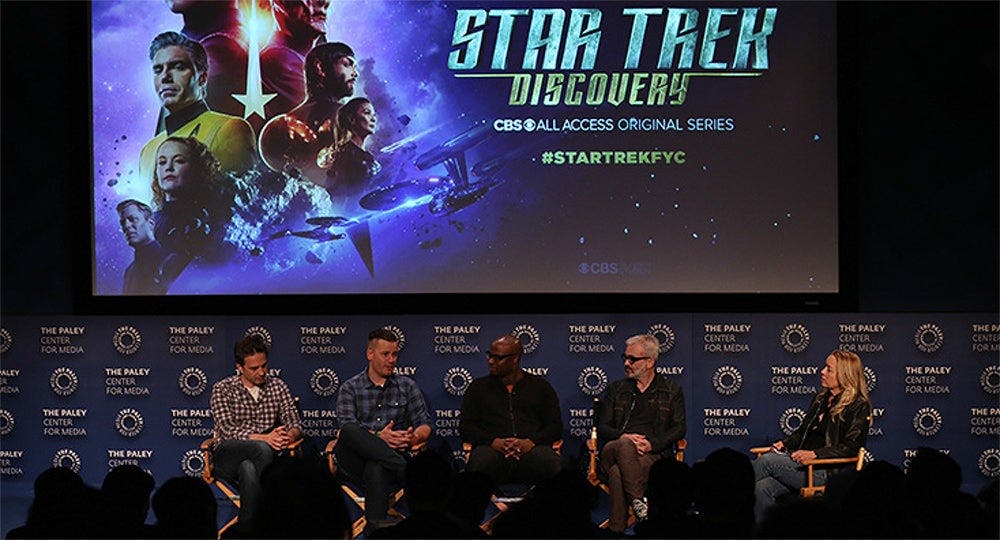
StarTrek.com
Naida Albright: I'd love to talk about design for a second, before we talk about the visual effects, because the production design is just magnificent. JZ, can you talk a little bit about design and how you worked with the designers in terms of your visual effects? I'd love to know about the legacy of the U.S.S. Enterprise and working with that as well.
Jason Zimmerman: As far as working with production design, I think we started working on this episode while we were delivering [episode] 15 from season one. Alex started to drop hints about what we were going to be doing, so we all got together and started talking to discuss the different aspects of what the sequences would involve. Then they got busy right away and started to provide concept art that we could all look at and give feedback on, and react to just to start to hone the world in a little bit and figure out what things were going to look like.
Alex Kurtzman: That's pretty much par for the course in terms of how we do the show in general. They definitely kick things off and give us a lot of great concept work, and really start us off on the right foot.
JZ: Then as far as the Enterprise, again, credit to the art department and production design for starting with that because it came to us [so well rendered that], we just had to really make it photo-real . So, adding the right textures, detail, and everything to bring it to life.
NA: Alex, you wrote and produced Star Trek (2009) and Star Trek Into Darkness. Are you flexing a different muscle working in TV? I'd love to know about that, and also about bringing in your collaborators here and how you choose them.
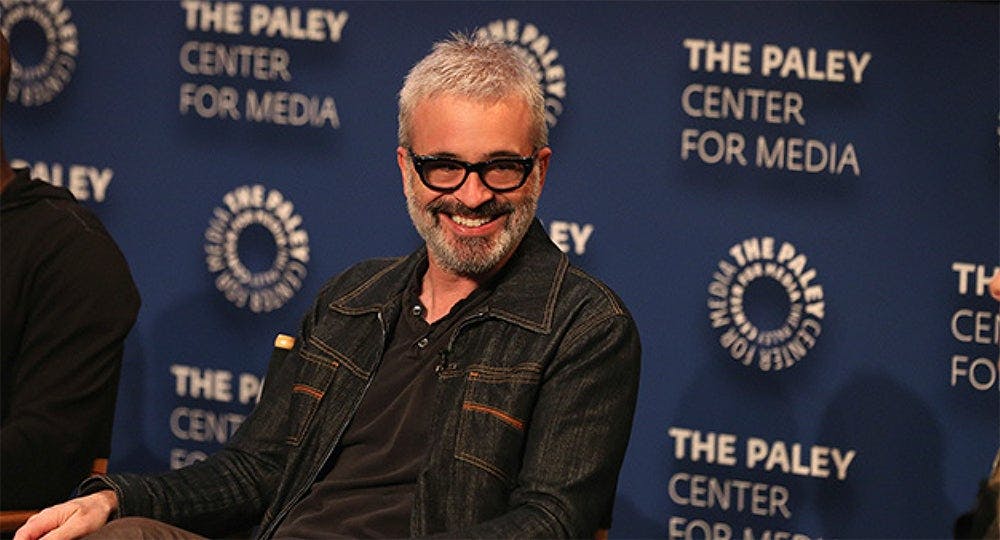
StarTrek.com
AK: Sure. What I love about the current state of TV is the line between movies and television is over. It's gone. If it's not entirely gone, our objective is to make it gone. I feel like I've had the incredible privilege of watching so many amazing directors work and they'll do it very differently. I think what's so great about television now is that we have 10 to 13 hours to tell the story. That allows you to really dig into the characters in a very different way. It's tougher in two hours, but having watched a lot of the process of how visual effects are done in those films, we've been able to take that. I would say it's not very different with what we do now. We hold it to that standard always.
Jason and his team are incredible, but it requires everybody. Jason and I spent about six months prepping the asteroid sequence that's in this and it was a long, long, long process of working with pixel, storyboards, and doing it again. When we were actually shooting with our cast, and all they were doing is sitting in a chair against the green screen, we knew exactly how it was going to cut in with the previous [shots], to the moment. There was no improv in any of that. I have such comfort with everybody on this panel, and I think we all have it with each other because the tide lifts all boats, and so we always want to make sure we're supporting each other with all the tools that we need. But also that we're pushing each other to do something people haven't seen before and to make it more exciting, more visually specific. We spent a tremendous amount of time thinking about how to make it as cinematic as possible, so when Tunde is directing — and he did the [season 2 finale] you just saw and the one before it — he did an unbelievable job in a crazy-short period of time.
NA: Jeff, I actually want to talk to you about your process of re-imagining a score like this, which is so iconic.
Jeff Russo: I tend to like to write music based on what I think a character is feeling, rather than what a character is doing. It's a little bit of a shift for a show like this, but I kind of feel like that's what I have felt in past iterations of whatever Star Trek is. It's mostly there's a lot of action, but a lot of it really gets to the heart. A lot of the storytelling that Alex does, and we all do, is really emotionally connected. You try not to change too much, but you try to make it what it wants to be. I know that's not a really clear answer.
AK: No, but it's true.
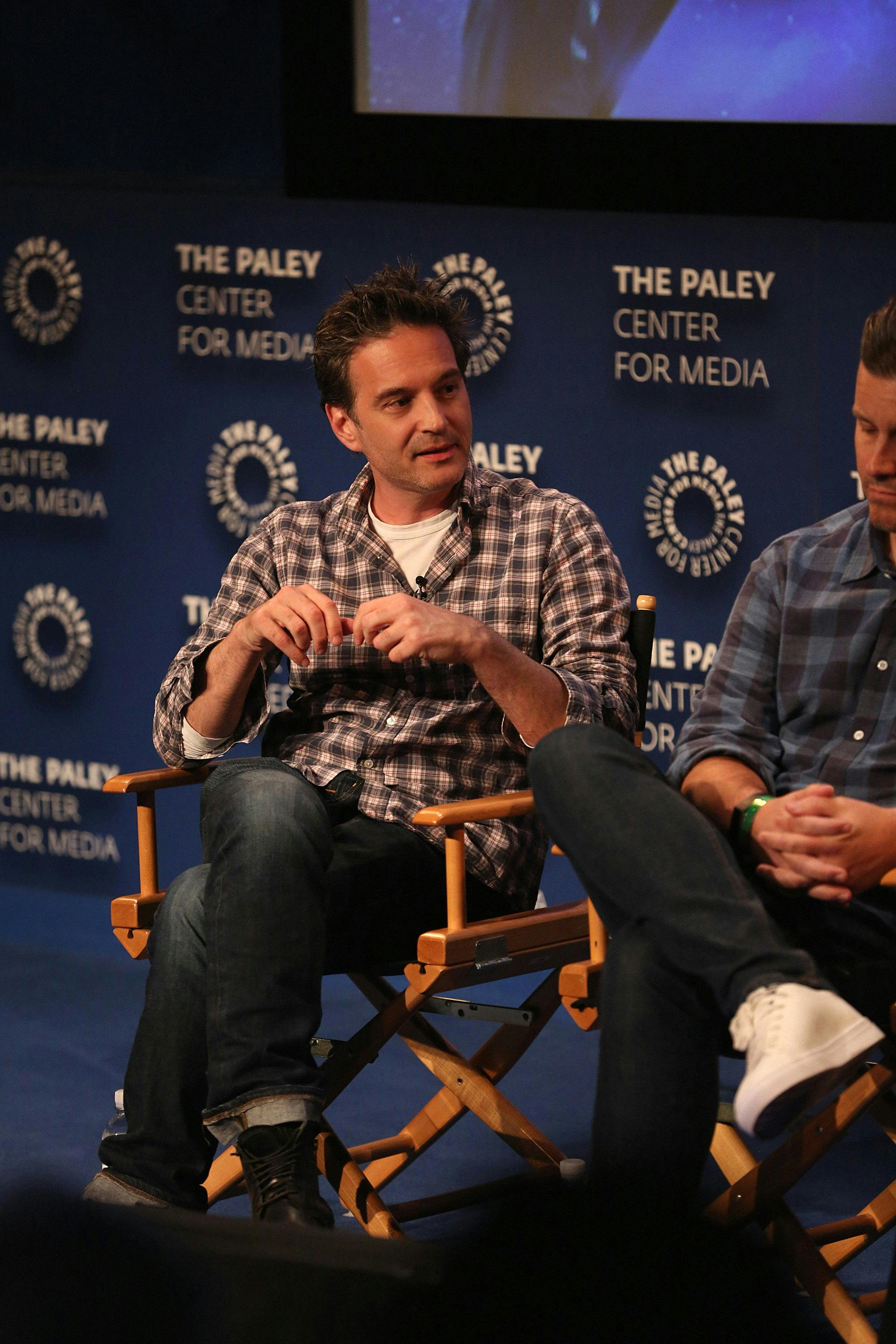
StarTrek.com
JR: But it's a very fine line to walk. I feel as though I'm standing in the shadow of giants. We're talking about [the music of] some of the greatest film and television composers ever, and to stand up to that is a pretty tall task, but you try to just walk the line. Last season, when we ended with the Enterprise and knowing that it was Captain Pike, I was like, "Oh, canon says that Pike and Spock must be together." This is in my mind, not being talked about with producers and writers, so I thought, "At some point we'll probably see Spock, right?" I started thinking about it then and what a Spock theme might be… so last season and this season for Vulcans, I used a lyre harp, and I used a wind instrument called a duduk, which is a Middle Eastern instrument. It's very evocative and very emotionally evocative, and it has worked really well in the context of the show. Now, when I was writing for Spock as a boy, I thought, "Oh, okay, so I can write something here that's a little deconstructed and not such a big, emotional, ‘Oh my God, it's Spock thing,’ yet because he's still just a kid and it's a flashback." Once we get into episodes where Spock becomes a main character of the show, I'll have to think about it in a different way.
NA: I noticed throughout your career, you've picked a lot of dark material, sci-fi. What do you think it is people like about that genre? Why do you like it?
AK: That's a great question. I don't know why I've always been attracted to the darker side of things. Maybe there's something wrong with me. It's just I like to have fun in my normal life. You can ask my wife. You can ask my kids. I like to have a great time. I think I'm attracted to the darker side of things because it allows me to exorcise those demons in a safe way. Maybe audiences are attracted to the darker side of things because it's like watching a car crash. They're able to examine these darker things without it being too close, and too close to the heart. I can't underscore enough how amazing Jason and his team are. They work tirelessly. You have to figure every shot goes through 40 to 60 revisions. We have very little time to do it. As Jeff said, we try and tell the stories from the inside out. It's not just, "How amazing can the shot be?" It's "How does it work in the emotional context of the story?"
NA: You've got an updated look. How do you balance that with what's familiar for the fans? What's the balance there? Was there anything you definitely knew you didn't want to do or was it just as you went along?
Olatunde Osunsanmi: I think season one felt darker in general, and we knew right off the bat we wanted to go to a lighter tone, a tone that kept a level of emotional reality. I think people are so nostalgic, [and] they think in such a nostalgic way about the Enterprise and Spock. What we didn't want to do [was] the dark version of that. It felt wrong tonally. There were so many things [to get right] in the first episode: the music, the visual effects themselves, the production design. The way all departments coordinate is critical. It's not just this department does this, and that department does that. It's everybody has to talk to each other and understand the global vision. What are the colors of the scene? What's the light of the scene? How are the visual effects going to work in the scene? How's the camera going to move in the scene? All of these things are interconnected in a way that creates a sort of invisible effect. What we want to do is bring a lot more joy to the season and just joy to the experience and the buoyancy [of] Captain Pike coming on board. They come on board with those amazing colors. The minute you see those colors, you're like, "Oh, my God, that's like The Original Series." It was just a matter of figuring out how to retain the spirit of that, but update it with the tone of our show.
NA: Jason, I'd love to hear a little bit more about where you find inspiration for your craft outside of the Star Trek universe.
JZ: We definitely watch all the other shows that are on TV and all the other movies, as much content as you can take in. There's a lot of really good work out there right now. A lot of people are doing a lot of amazing work and visual effects especially. It is the golden age of TV in a lot of ways. [But] there's even more inspiration from Trek itself. It's been around for so long, and there's such a legacy, especially for visual effects. In a lot of ways it has pushed visual effects forward in features and TV. We have a very daunting task ahead of us in order to do something that fits in with that timeline but helps to push it ahead in a way that's not taking away from the stories.
NA: I want to know if you'll talk a little bit about the wormhole, in terms of what you wanted it to be. It was just so powerful, and I think it was absolutely gorgeous. Can you talk about some of the challenges or where you wanted it to be and how it ended up?
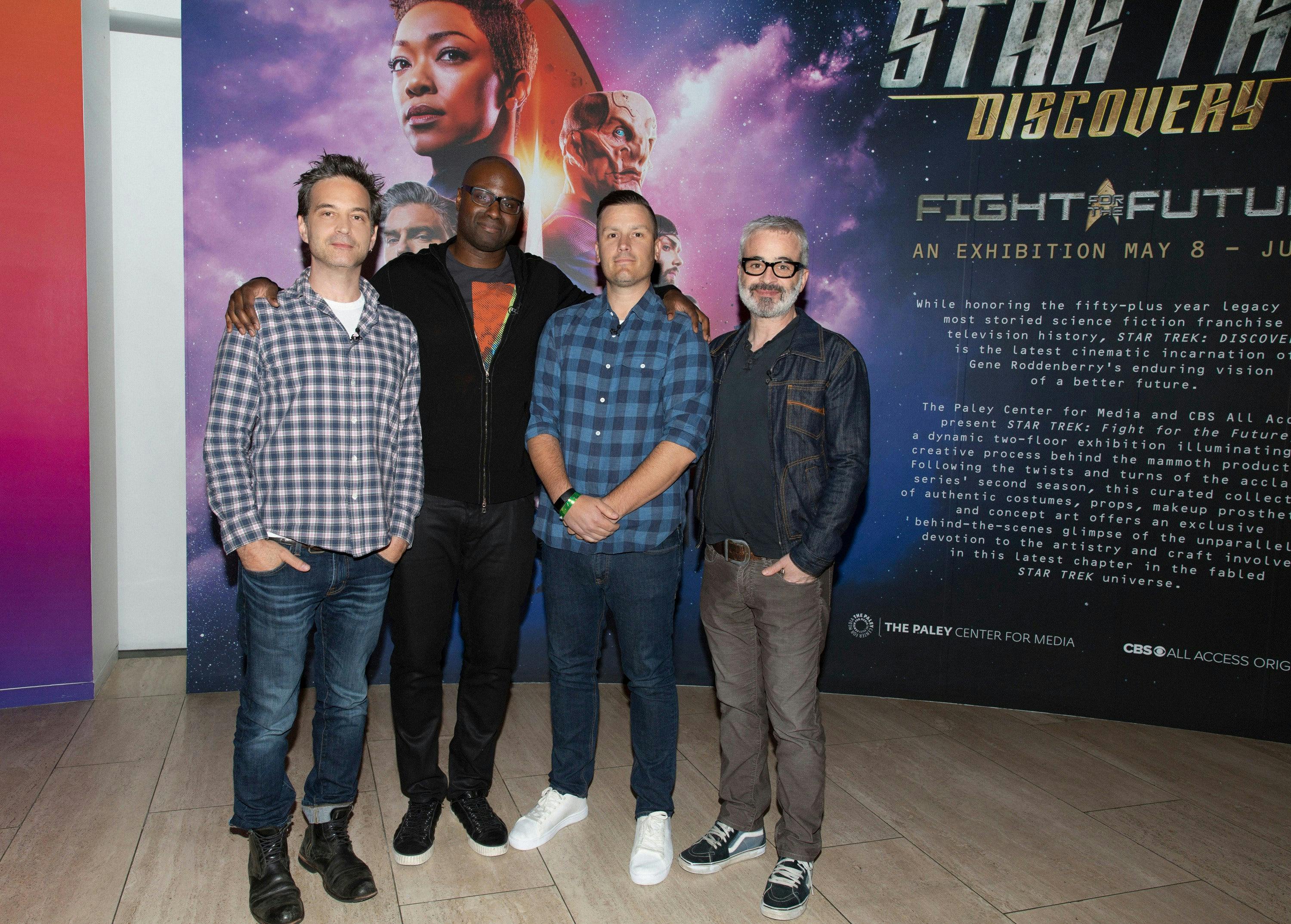
StarTrek.com
OO: Well, there's been so many different ways we've seen time travel. One of the challenges is how do we find a unique way in? The wonderful thing about JZ and his department and the effects in general is we can almost imagine anything. I know I can imagine almost anything, and this guy will help me through it. It was actually Alex who had this wonderful idea about having these live sparks instead of doing the whole thing CG, and then using CG to really elevate it further with the wide body shots. That's usually the challenge, what do you do practically and what do you do CG-wise?
JR: In regards to time travel, these guys, everybody, is so on their game with this. I don't know what it would feel like to time travel, but all I needed to concern myself with was "How would she feel?" I know how it would feel to see something that you've never seen before; you feel your heart beat faster, you hear yourself screaming inside your head, with awe, and all of those things can be embodied in music. And that was really what I needed to be concerned with there. How is she taking all this in? I started with the tempo of your heartbeat about 72 BPM, and I started to increase that tempo as we got farther and farther into the wormhole, because I kind of felt like her heartbeat would probably get faster and faster and faster and faster and faster, until all of the sudden she was there, and then tempo drops back down and she's calm again... because she's now seeing something that she had already seen.
AK: I think one of the things too that's really interesting - I'm not a musician and I would never pretend to be a musician - but I almost only, exclusively, listen to soundtracks, all the time. So, I have a lot of weird, eccentric, strange cues from strange things. We're very collaborative and Jeff is very un-precious in the best possible way. So I can't say, “Hey, this is the instrument that I think we should use,” but [what] I can say is like, “You know, there's this cue on this thing, and there's actually a moment two and a half minutes in where there's this really weird note and [it] does this thing, and it makes me feel this.” He's like, “I got it.”
NA: Jeff, did you get an inspiration outside of Trek as well? Or is it just kind of internal, what you were saying, per script and per character and emotion?
JR: Well, there's a sound of what Trek is, there's a sort of innate thing of how you utilize certain instruments in the orchestra, and one of the things we talked about early on was wanting this to be an emotionally-based score. But, I wanted to make something that doesn't really exist. It's our own thing... I try not to take too much inspiration from outside sources because it's very easy to become a carbon copy of something else, and we don't want to do to that. The one thing I did do was go back and watch a bunch of Trek. I went back and watched The Next Generation. I went back and watched The Original Series. And what I realized is the one thing that connects the whole thing is this emotional context. But we are a way more modern version of this, and that I needed to bring that out in the score.
NA: Alex, what do you hope for a show like this? It builds on what we know and love so well. So, where do we go from here?
AK: We go to 930 years into the future, which is a whole new ballgame. Writing the [season three] premiere [was] like writing a pilot for a new show in many ways, and it's daunting in the way that you want it to be daunting, because you're not resting comfortable on anything. My great hope for the show... I think what I'm most proud of with the show is how much it seems to have reached people with its message and how meaningful it is to a lot of people. Trek has always been deeply, deeply meaningful to its fan and I think that... So many people come up to me and talk about how meaningful the representation on this show is to them, and that's something that we talk about every day in the room, and that we work toward every day on all fronts, behind, in front of the camera, across the board. And I hope that... Trek has always had this kind of funny thing where Star Wars was like the cool, older brother and Trek was like the nerd that lives in the basement. We want to change that a little bit because, in a way, I feel like Trek's message is more relevant now than ever, and it's always been really relevant.
Star Trek: Discovery streams exclusively on CBS All Access in the United States and is distributed concurrently by CBS Studios International on Netflix in 188 countries and in Canada on Bell Media’s Space Channel and OTT service Crave.

